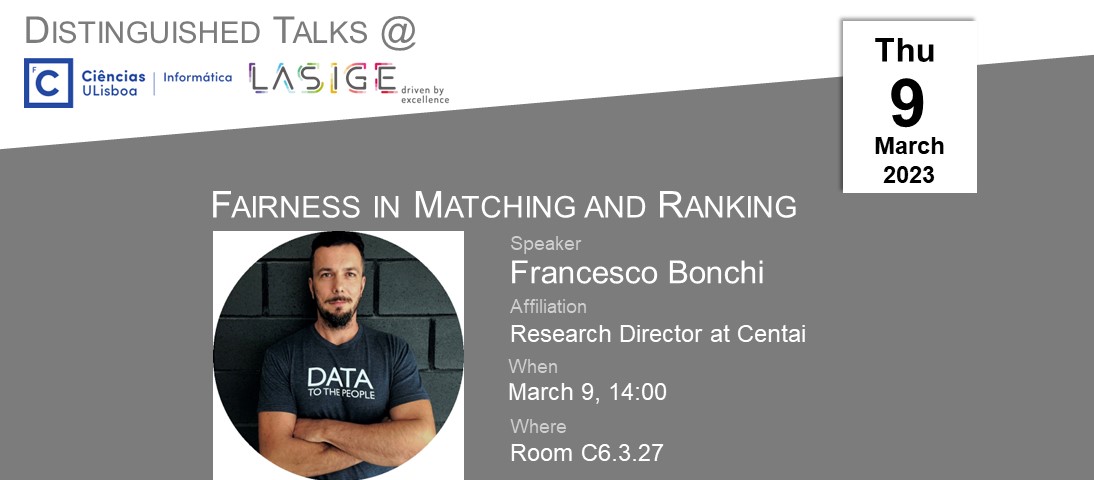Title: Fairness in Matching and Ranking
Speaker: Francesco Bonchi (Centai)
When: Thursday, March 9, 14h00
Where: C6.3.27
(Coffee break included)
Abstract: Matching and ranking algorithms are used routinely in many decision-making processes in spheres such as health (e.g., recipients list for solid organs transplantation, triage in a pandemic), education (e.g., university admission), or employment (e.g., selection for a job), which can have a direct tangible impact on people’s life. Although many valid solutions may exist to a given problem instance, when the elements that shall be matched or ranked in a solution corresponds to individuals, it becomes of paramount importance that the solution is selected fairly. In this talk, we present a recent line of research, in which we study individual fairness in combinatorial problems and argue that, given that many different valid solutions may exist, each one satisfying a different set of individuals, the only way to guarantee fairness is through randomization. Our proposal, named distributional max-min fairness, uses randomization to maximize the expected satisfaction of the worst-off individuals.
Short Bio: Francesco Bonchi is Co-Founder and Research Director at Centai (Center for Artificial Intelligence), a newly established research center in Turin, Italy. He’s also a member of the Board of Directors of Centai and CEO at SOM (Sound of Mind) S.r.l., the holding of researchers owning 51% of Centai.
Earlier he was Scientific Director at the ISI Foundation, Turin, Italy, where he was also coordinating the “Learning and Algorithms for Data Analytics” Research Area. Even earlier he was Director of Research at Yahoo Labs in Barcelona, Spain. He is also (part-time) Research Director for Big Data & Data Science at Eurecat (Technological Center of Catalunya), Barcelona.
His recent research interests include algorithms and learning on graphs and complex networks (e.g., financial networks, social networks, brain networks), fair and explainable AI, and more in general, privacy and all ethical aspects of data analysis and AI. He has more than 250 publications in these areas. He also filed 16 US patents and got granted 9 US patents.
